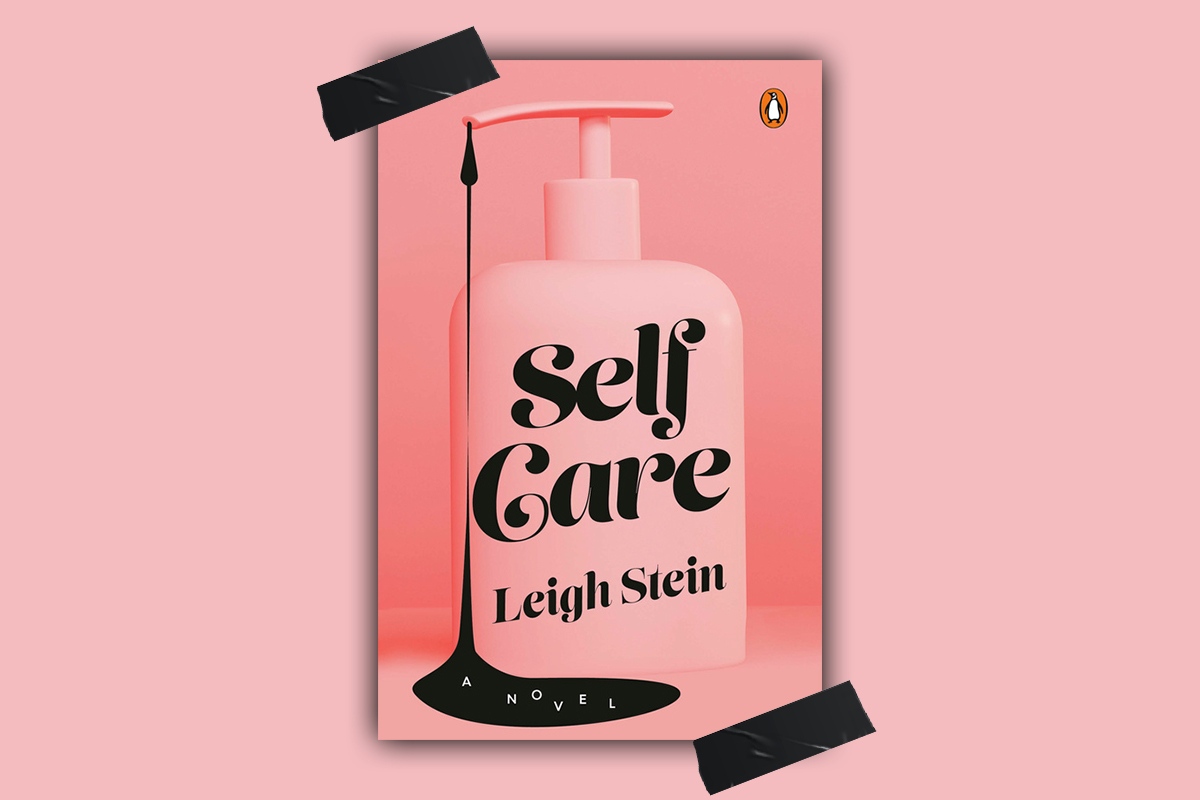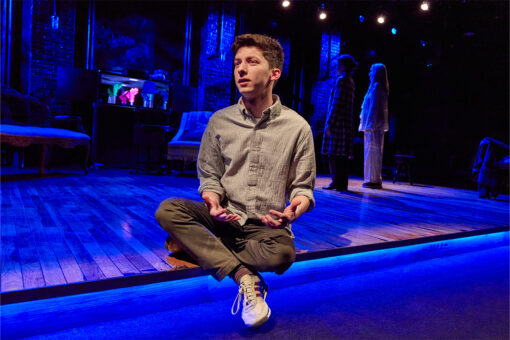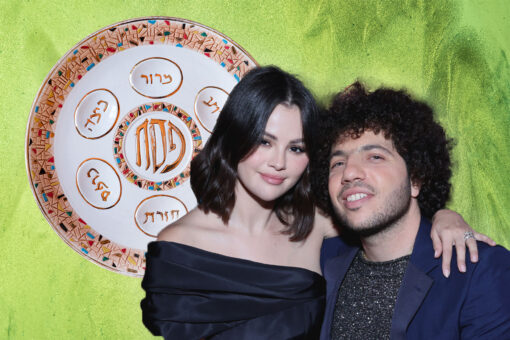Leigh Stein’s latest novel Self Care is an incisive satire of the wellness industry, and it is so damn good. I started reading, kept reading, and didn’t look up until I was done. The story is told through three narrators: Maren and Devin, who are the co-founders of a self-care social media platform called Richual, and Khadijah, a Black woman who is their first hire. As I wrote in my round-up of favorite books for summer 2020, there is so much to applaud about Stein’s novel, from the way she dives into #girlboss founders, performative wokeness, “feel-good feminism,” #MeToo, and so much more. It’s a dark, satirical look at what it means to be a millennial woman online — and to capitalize on being a millennial woman online.
I got the chance to chat with the Jewish author about all things self-care, working in media, and the internet.
This conversation has been lightly edited for clarity.
First of all, congratulations on Self Care. I loved it, and I can’t wait for everyone to read it. Every time I see a new white woman CEO stepping down from a “feminist” company, I think of your book being released in these times —
In these unprecedented times.
Unprecedented times, exactly. What has it been like for you, reading the news and prepping for the launch of your novel?
I thought I was going to have a book coming out during a pandemic. That was the first phase that I went through. And of course, I was writing my novel in the wake of the #MeToo movement. So I was really thinking about questions of consent and blurred lines and assault and victimhood and when or when not to disclose your victimhood status. That’s what I was thinking about.
I could not have predicted that the kind of racial dynamics that I put in my novel would be playing out in public as they are right now — that I kind of anticipated the changing of the guard between this white girl feminism and this national uprising for anti-racism in corporate spaces.
How did you weave in all those ideas you just mentioned — consent, victimhood, and more — in such a nuanced way?
A couple things inspired me. One was in 2016, my own memoir [Land of Enchantment] came out. My memoir was about an abusive relationship I was in in my early 20s. But it’s a topic that I wanted to approach with nuance and complexity, because I really felt addicted to this other person. And I felt like I was in this kind of tragic loop of desiring something that was bad for me. When the book came out, I had to give all these interviews, like this one. I was on a podcast and the host called me a survivor, and I said, “I’m not really comfortable with that label.” And she said, “What about victim?” and I said, “I’m not really comfortable with that label either.” And I found the process of marketing the book to be a process of labeling things in a way that made it seem too black and white. I also didn’t want to make “survivor of emotional abuse” my brand. I didn’t want to go on a speaking tour as like the poster child of something.
So those icky feelings really informed what I did to the character Devin, who’s in this messy relationship that she’s kind of ashamed of, that she’s also kind of trapped in and also kind of wants. So I’m exploring those blurred lines to create something that I hope women will read my book and talk about. Because I don’t think it’s an easy yes or no, black or white situation.
And then the other thing that really informed my plot is watching what happened with Lena Dunham and Jenni Konner, her writing partner, when a male writer on the TV show Girls was accused of sexual assault. At first Lena and Jenni defended him. And then they were called out as hypocrites, because women tweeted “believe women,” “believe victims,” and they had to come around. So I was really interested in what happens when you make feminism a part of your brand, and then something happens that challenges your own beliefs — which side do you come down on?
I feel like we’re seeing that play out every day in the news right now. So on one level, Self Care is diving into these really complex and timely topics, and on another level, the book is a really funny satire of the wellness industry. How did you strike that balance in the plot? Your description of their app, Richual, felt so very real.
Yeah, I mean, the [name] Richual is, of course, a joke on Goop and the kind of lifestyle that they’re selling. If you go to their website, the cost of their products are for a certain class of women. And I thought this was really funny, because when you think about what self-care really means, a lot of it costs nothing: taking deep breaths, sitting quietly in meditating, getting enough sleep, drinking eight glasses of water a day. That’s self-care, but companies can’t make money off of that. So they have to find ways to commercialize and market self-care to us in the form of an app for meditation that you pay for a subscription to, or a water bottle that has certain numbers on it so that you can track your water. As a culture, we have a lot of anxiety. And we feel bad about ourselves and we’re stressed out and we’re depressed. If a company says, here’s a product that will make you feel better, I mean, I would spend $20 to feel better.
So I wrote the book as a Trojan horse. On the outside is the pink shell of The Wing or of Goop — it looks women-friendly, and it has all the products that are easy to make fun of. But then inside that Trojan horse is where I’m really asking these harder questions about how we’re living online, how we’re sorted into these tribes with people like us, and how influencers have to show us that their lives are better than ours, but also tell us that they’re vulnerable just like us. So it’s about all these mixed messages that women get from the wellness industry.
On that pink shell note, I want to ask quickly about the book cover as well. Did you have any input on your cover? As you just said, it grabs you in.
I love my book cover. I think they did a phenomenal job. I’m not a very visual person, so I didn’t really have an idea of what it would look like. Early on, I made a Pinterest board and I told them, “I’m not afraid of pink.” I didn’t want them to think, “Oh, is it sexist to make it pink?” They exactly communicated what it is and how there’s something dark at the heart of this pink branding.
Totally — and there are so many little details in the book that get at that darkness, too. Like the fake Vogue article about the “workplace as vulva,” the fancy mac and cheese place, all these tiny little specific things. You mentioned Goop and The Wing, but do you follow influencers? Where did all these ideas come from? What’s in your brain?! It’s so great.
I spend a lot of time on the internet. So I definitely use Instagram as a place to find inspiration for my characters. There are many yoga influencers I follow; you’re watching them do vinyasa flow, and they’re hardly wearing any clothes. But then the caption will be like, “In honor of 9/11 I’m just thinking about all the light.” It’s totally surreal: a combination of vulnerable and traumatic content, combined with this facade of a luxury lifestyle. As the millennials would say, very late stage capitalism.
The other thing is for three years, I ran this private Facebook group of 40,000 women. I really saw the dynamics that happen in groups when people are kind of jockeying for status power. What I found is that some of the conversations turned into looking for ways in which another woman was not saying the correct thing and being ready to pounce on her. So there’s a sense of surveillance. I see that even more now. When I was running this organization from 2014 to 2017, I was watching this happen in this little bubble on Facebook. I was in this bubble all day long, and then I would step away from the bubble and I would explain to my boyfriend what had happened to me that day. And it seemed bizarre to him. But now, we all know what this is because it’s happening all around us. The bubble has gotten bigger.
The level of surveillance that we’re seeing in terms of, did an influencer put out a statement of Black Lives Matter? When is she going to put out her statement? Did she use the correct words? The swelling movement for anti-racism among white people is a good thing, undoubtedly. But I’m kind of skeptical of why we’re looking to influencers as our moral leaders. Why are we looking for them to be almost religious figures in our lives?
Yeah, that’s such an interesting point. For the Facebook group, why did you decide to step away from it ultimately?
Well, I had a dual role. So one part of my job was organizing conferences in person for writers [BinderCon] and I absolutely loved doing that work. I loved finding the speakers and putting together workshops and seeing the successes of our members.
That was such a positive experience, and the Facebook group was such a negative experience. It was a lot of drama and infighting among women who presumably had the same goal, the same feminist values. I was often being called in to moderate fights between different people; it was a 24/7 job that ultimately led me to burn out and take anti-depressants. I got a repetitive stress injury in my wrists from working so hard — I had to wear wrist braces. At the last conference in L.A., we had Lisa Kudrow as a speaker, and I had to take off my wrist braces to be in the photo with Lisa Kudrow. Such a high and such a low. Ultimately for my health, I had to leave.
In the book, Maren and Devin meet at a conference. And there’s the whole conference scene at the end, which I won’t spoil. How much does your own background in organizing feminist conferences for women come into the book?
I would say there’s an overlap between this kind of “girlboss phenomenon,” all these millennial women rise and start companies — like Emily Weiss [of Glossier] and Audrey Gelman of The Wing — overlapping with the experience economy.
All these women empowerment conferences where you go and everyone in the room is there to network so someday they’ll be on stage. It’s a lot of ambitious women, but a lot of it is branding and phony. My organization was a not-for-profit; the most I ever made in one year was $12,500. My goal, my dream, was if I could fundraise enough, I would be paid $40,000 a year. That was my goal, and I never reached it. But at the same time, I was getting all this advice from people that were trying to turn me into a #GirlBoss. They were like, you need to work on your personal brand. There was this pressure for me to leverage my brand as a feminist to make more money, and that felt so gross to me. So I would just say that I’m fascinated by the conference circuit and the hypocrisy.
I feel like what you’re getting at in terms of leveraging your own brand, or the idea that you’re encouraged to do so, really ties into what you address in the book about being online as a millennial woman, as a writer, especially working in media. I feel like I’m really hesitant to write anything personal about myself, but I know it’s part of being a writer online today. I find it really challenging. How have you experienced being online as a Jewish woman?
I teach memoir writing classes, and one of my students this spring read my memoir. She said, “I can’t believe how much you revealed in your memoir.” And to me, it’s not something I think twice about. I’ve been writing about myself online since a very young age. I started when I was maybe 17 or 18; I had a LiveJournal and I was writing poems. I built my career as a writer by starting online. It doesn’t mean that I write about every part of my life online. But I don’t know how else to have a career except by being myself in public. I don’t think it’s fair that the expectation should be that every young person should have to do this. But it’s what I know.
Do you have advice for young women in media who are trying to build a career in this media landscape as a writer?
That’s a hard question.
I apologize!
No, no. It’s a good question. I mean, I think you have to find ways to keep putting yourself out there. It doesn’t mean that putting yourself out there means writing autobiographically about your life. But so many of the opportunities that come across my plate are people thinking of me for some reason, and coming to me for something. I’m not, at this stage, chasing and submitting, though I just went through like six weeks of pitching stuff and just getting nos. I know that pain, too, and I know that pain of rejection. That’s another thing to remember: Just because people see me as a person with a book coming out doesn’t mean that I don’t get rejected all the time. But I do get opportunities because I have put work out there.
You’re building — it’s this branding thing again — but you’re building a brand for yourself. And you’re articulating what you want that to be. For me, I’ve come to decide that the brand that I really want people to know me for is someone who writes about the internet. And that comes up again and again. It comes up in my poetry and my fiction and in my non-fiction. It’s not forced. So that’s another piece of advice: Follow your own obsessions, because you have obsessions that no one else has.
When readers put down Self Care — in these unprecedented times, as you said — what do you hope they take away from it?
I hope they talk about it. That would be really exciting for me: to create a book that people argue over. But on a personal level, I hope that it gives women empathy for other women, because the internet is only giving us a partial picture of what’s going on in someone’s life. And just because someone tweets something, and uses the wrong word, doesn’t mean they’re a garbage person. So I wish we could have a little more grace for each other because everyone’s going through something.
I’m sure you’re now getting this question all the time now, but what does self-care actually mean to you? And what did it mean to you before writing the book? Has it changed?
I’ll tell you, I was really bitter and cynical about self-care going into writing the book. I kept seeing this Audre Lorde quote everywhere [“Caring for myself is not self-indulgence, it is self-preservation, and that is an act of political warfare”]. It just seemed like self-care was permission to do whatever you want. And then that’s somehow a political statement, if you’re taking care of yourself. I just called bullshit on that.
And then I started therapy a year ago and my therapist [goes], “So, based on everything you said, it sounds like we really need to work on self-care.” I burst out laughing and I [said], “I actually wrote a novel called Self Care.” But she was right. I have a really hard time taking care of myself. I’m much more likely to take care of other people than to take care of myself. So it’s something I really had to work on and learn.
It’s so simple that it sounds stupid, but it’s like checking in with your body and noticing that you’re inhabiting a body. For me, I’m so cerebral, I’m so in my mind all the time, I forget that my mind is being carried around by this body that I have to take care of. I don’t think self-care requires buying any products. I think that’s the disingenuous definition of it.
As someone who writes about the internet and whose brand is thinking about the internet, what’s your own relationship to it? How do you put your phone down? How do you spend your time on it?
It feels like an abusive relationship. It’s very hard for me to leave, and I recognize the unhealthy parts of it. And yet, I still have this fondness and nostalgia for it as a place where I’ve been making friends since I was 13 years old. When I was 13, I made a friend, in an AOL chat room, who loved musical theater. I had a mental health crisis at the time, and told him I was suicidal. He had my address because I had sent him a letter in the mail. So he called the police in my hometown, who called my middle school, who called my parents, and they got me treatment for depression. So the internet literally saved my life when I was a teenage girl. It has become such a toxic place for me that there’s a sadness there. But I’m still obsessed with it, and I still wish more people understood that it’s real life and not unreal life, that things on the internet have real-life consequences.
Thanks to Maddy Albert for help with transcription.



